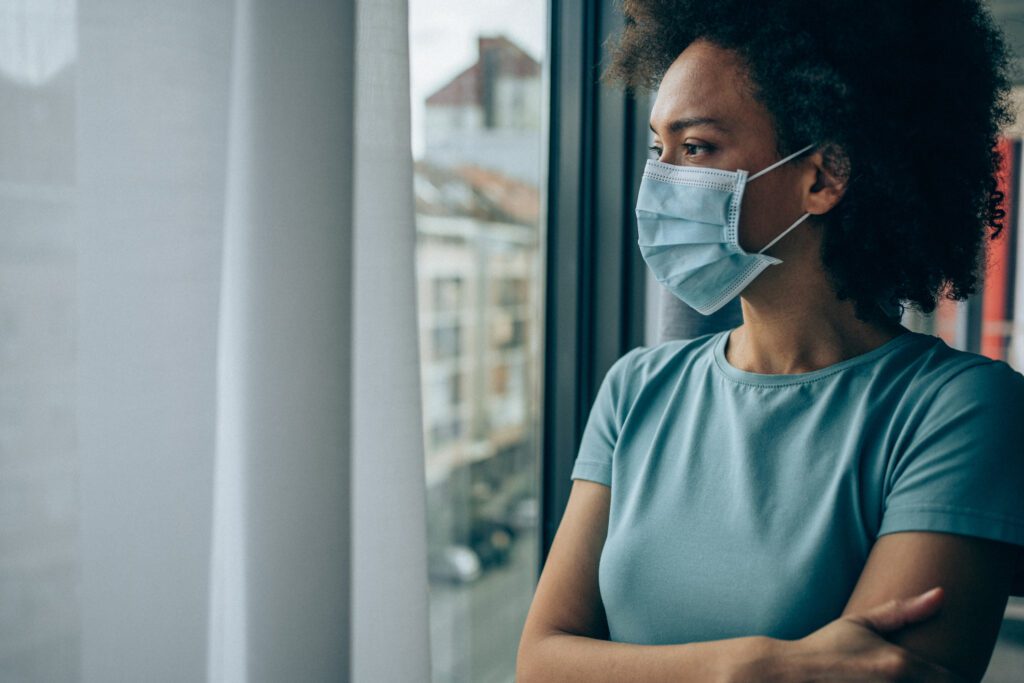Disclosure :: This post is sponsored by Ochsner Health.
7 Mental Health Tips for Parents
 Between the ongoing COVID-19 pandemic and hurricane season, it’s easy for parents to forget to take care of themselves. However, it is important for parents to prioritize their own mental health. Not only does it make you feel better, but it models positive health behaviors for your children. Here are a few tips to help you maintain your mental health and warning signs to look for in children and other family members.
Between the ongoing COVID-19 pandemic and hurricane season, it’s easy for parents to forget to take care of themselves. However, it is important for parents to prioritize their own mental health. Not only does it make you feel better, but it models positive health behaviors for your children. Here are a few tips to help you maintain your mental health and warning signs to look for in children and other family members.
- Create a morning routine. Having time to yourself before the craziness of the day begins is a great way to feel grounded, centered and ready to tackle your day. Start your day with activities that you find soothing. Drink a cup of your favorite tea. Listen to relaxing music. Engage in gentle stretching or yoga to get your body moving. Complete a guided meditation via YouTube or apps like Insight Timer, Calm or Headspace. Beginning your day in a relaxing way can improve the trajectory of the day to come. Make time for yourself. Even if you only have 15 minutes, make time for yourself to do something that you enjoy.
- Write it out. Writing things down can help you process information and can help you avoid becoming overwhelmed. Keeping a journal (on your phone, computer or with pen and paper) can help you process emotions. Writing down your daily schedule (including breaks) can help you manage tasks and avoid becoming overwhelmed as well.
Pro Tip: While creating your schedule, do so with grace. Sometimes changes in schedules can trigger stress and anxiety. Allow yourself some “wiggle room” because, let’s face it…things happen.
3. Get enough rest. Sleep deprivation can exacerbate mental health issues. Aim to get ready for bed at least one to two hours before your bedtime. Dim the lighting, put away your phone and other distractions, and try to relax. Try to go to bed at the same time every night. Adults should aim for seven to eight hours of sleep, while children require more. You can learn more about recommended sleep requirements from the Centers for Disease Control. When waking up, try not to linger in bed. If you set alarms, try to keep your alarm out of reach. This will force you to get out of bed to turn off the alarm. Once you’re up, start your morning routine and resist the urge to get back into bed.
4. Connect socially. Social isolation can be a contributing factor to depression. Part of your routine should include making time for those who you are unable to see in person. An easy way to maintain connections with your friends, family and loved ones is to utilize technology through video chats, phone calls and the internet. You could also consider writing letters and exchanging gifts in the mail.
5. Take a step back. If you’re feeling overwhelmed, it is important to honor your feelings and take a moment to pause. Monitor your levels of anxiety. If you feel like you’re starting to get anxious, it’s better to take a break instead of trying to push through. If you are working from home, this includes taking scheduled breaks to step away from your work, if only for five minutes. You should also take a break from social media and local or national news if you feel anxious and overwhelmed. Consider setting a specific time of day and time limit for when you will allow yourself to check social media or consume the news.
6. Look for warning signs. Some signs of declining mental health include
-
- Prolonged sadness
- Isolating from friends, family or socializing
- Losing interest in hobbies and passions
- Hurting oneself or talking about death, suicide or harming others
- Extreme irritability or anger
- Low self-esteem
- Changes in behavior (eating habits, sleeping habits, work or academic performance)
- Decline in self-esteem
- Trouble concentrating.
In younger children, you might notice regression, clinginess, missing milestones or loss of confidence. If you notice these signs in your children, talk to them about how they are feeling.
7. Reach out to a mental health professional. If you feel like you can’t manage on your own, make an appointment with a mental health professional who can help.
Learn more about Psychiatry & Behavioral Health Services and Child and Adolescent Psychiatry and Psychology Services at Ochsner Health.
Dr. Gunn received her undergraduate degree in psychology from Xavier University of Louisiana in New Orleans, Louisiana, her master’s degree in clinical psychology from 




















